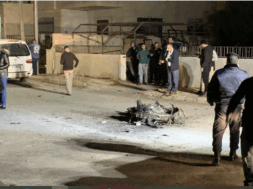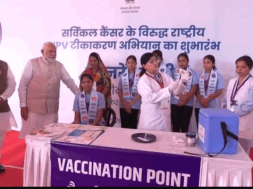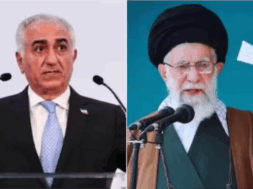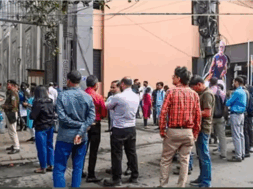
ECI Reacts Strongly to Kharge Insinuations, ADR seeks SC Direction to ECI for Early Release of Authenticated Figures
Manas Dasgupta
NEW DELHI, May 10: Even as the Election Commission of India reacted strongly against the Congress president Mallikarjun Kharge’s “internal correspondence” alleging discrepancies in voters’ turn out data in the first three phases of polling, a petition was filed in the Supreme Court on Friday highlighting the inordinate delay in the publication of voter turnout data coupled with unusually high revisions after the first two phases of polling in the Lok Sabha elections.
Association for Democratic Reforms (ADR), represented by advocates Prashant Bhushan, Neha Rathi and Cheryl D’Souza, said the delay in publishing the voter-turnout details and a sharp spike in figures from the initial percentages released by the Election Commission have raised concerns and public suspicion regarding the accuracy of the data.
Not only the opposition or the ADR, a group of civil society members and former bureaucrats have also expressed concerns over the fluctuation in figures of voter turnouts in the first two phases of the ongoing Lok Sabha election and urged the ECI to “immediately disclose” through its website, the authenticated record of voter turnout as contained in Part I of Form 17C – which is the account of votes recorded in each polling station.
“We are writing to flag our concerns arising from the large fluctuation in figures of voter turnout in the first two phases of the ongoing general elections and to urge the Election Commission of India to immediately disclose through its website, the authenticated record of voter turnout as contained in Part I of Form 17C,” the letter addressed to Chief Election Commissioner Rajiv Kumar and other Election Commissioners said.
Pointing out the big differences found in the poll panel’s initial reports of voters turn out and the final figures after inordinate delays of about 11 days, the ADR petition urged the court to direct the EC to disclose authenticated record of voter turnout by uploading on its website scanned legible copies of account of votes recorded at polling stations after each phase of voting in the on-going Lok Sabha elections.
Rule 49S and Rule 56C (2) of the Conduct of Election Rules, 1961 require the presiding officer to prepare an account of votes recorded in form 17C (Part I) and the returning officer to record the number of votes in favour of each candidate. As per Rule 49S of the Conduct of Elections Rules, at the close of polling, the presiding officer has to prepare an account of votes recorded in Part I of Form 17C and also furnish an authenticated copy of this to every polling agent.
Further, it sought the publication of a constituency and polling station wise figures of voter turnout in absolute numbers and in percentage form. The petition also urged the court to direct the ECI to disclose the candidate-wise result of counting after the compilation of results.
The petition said the voter turnout data for the first two phases of the Lok Sabha elections were published by the EC on April 30, after 11 days of the first phase of polling held on April 19 and four days after the second phase of polling held on April 26. The data published by the ECI in its April 30 press release showed a sharp increase (by about 5-6%) from the initial percentages announced by it on the polling day.
Initially, on April 19, after the first phase of polling, the EC had issued a press note stating that the tentative figure of voter turnout across 21 States/UTs reported was over 60% as of 7 p.m. Similarly, after the second phase on April 26, the ECI had said the turnout was at 60.96%
“The inordinate delay in the release of final voter turnout data, coupled with the unusually high revision (of over 5%) in the EC press note of April 30 and the absence of disaggregated constituency and polling station figures in absolute numbers, has raised concerns and public suspicion regarding the correctness of the data… These apprehensions must be addressed and put to rest” the petition said.
The ECI, however, reacted strongly to Mr Kharge’s letter to the opposition INDIA bloc members posted on “X” in which he highlighted the poll figure discrepancies and said the credibility of the ECI was at “an all-time low,” the poll panel has accused the Congress president of making baseless allegations to “create confusion, misdirection and impediments in the conduct of free and fair polls.”
In a sharply worded and unprecedented response issued on Friday, the Election Commission (EC) said Mr Kharge’s letter was in the form of internal correspondence within a political grouping and, yet, he had made it public – a reference to the Congress president posting it on X. Condemning his question: “Could this be an attempt to doctor the final results?” the panel said it could create an anarchic situation, besides doubts and disharmony.
The Congress has termed the “content and intent” of the response a “permanent blot” on the reputation of the institution. Senior Congress Leader Jairam Ramesh said the party would take up Mr Kharge’s letter and the response during the scheduled meeting of INDIA allies with the Election Commission.
Addressing the allegations levelled by Mr Kharge – who is also the Leader of the Opposition in the Rajya Sabha, point by point – the EC called them “insinuations and innuendos” and an “aggression on vitals of live election operations.”
On the key claims in Mr Kharge’s letter – that the voter turnout increased by around 5.5% in the first phase and about 5.74% in the second phase and that the data’s release was delayed – the EC said there was no delay and pointed out that the updated turnout data has always been higher than what was released on polling day. The commission backed up this claim by releasing a “factual matrix” of figures from elections, beginning with the 2019 Lok Sabha polls.
“The very premise that voter turnout data was released late is devoid of facts as it has always been available on the voter turnout app. The commission has not changed the design or periodicity of displaying voter turnout data in any manner. Needless to add that polling station wise data of electors and voters is given to agent of the candidate on the day of poll itself at close of poll,” the EC wrote.
On the Congress president’s other charge that some media reports had claimed that the final registered voters’ list for the next phases had not been made public, the panel said he would know, “as a senior parliamentarian, a very seasoned politician… and as the head of a prominent National Political Party” that the EC follows a transparent process of preparation of electoral rolls.
This, it said, is made stronger by the participation of political parties and candidates at every stage of the process, ensuring that parties know the number of electors at every stage of the electoral cycle. Expressing its displeasure with the post, the panel wrote, “Commission wishes you to appreciate that your comments/ observations/ allegations given in the aforesaid post borders on vitiating the constitutionally mandated work of ECI.”
“Through innuendos and insinuations, the contents of the post, tend to create disharmony in respect of the delicate space of election management, can plant doubts in the mind of the voters and political parties and potentially creates an anarchic situation, when you said “could this be an attempt to doctor the final results?” which this Commission hopes, you do not have any intention of. Commission has faith that all stakeholders in Indian elections and most importantly the people of India will hold these observations of yours in equal contempt (sic),” it said.
In his letter, Mr Kharge had alleged that the credibility of the Election Commission of India was at an all-time low and it had, “perhaps for the first time in history” delayed the release of the final voting percentages of the first and second phases of the Lok Sabha elections.
He said the Election Commission had earlier published voter turnout data within 24 hours of polling and wondered what had changed this time and why there had been no clarification. “Is there an issue with the EVMs,” Mr Kharge had asked.
Listing out other grievances and urging leaders of other INDIA bloc parties to hold the Election Commission accountable as well as safeguard its independence, the Congress president said, “As the Indian National Developmental Inclusive Alliance (INDIA), it should be our collective endeavour to safeguard Democracy and protect the independent functioning of the ECI. All the aforementioned facts force us to ask a question – could this be an attempt to doctor the final results?













